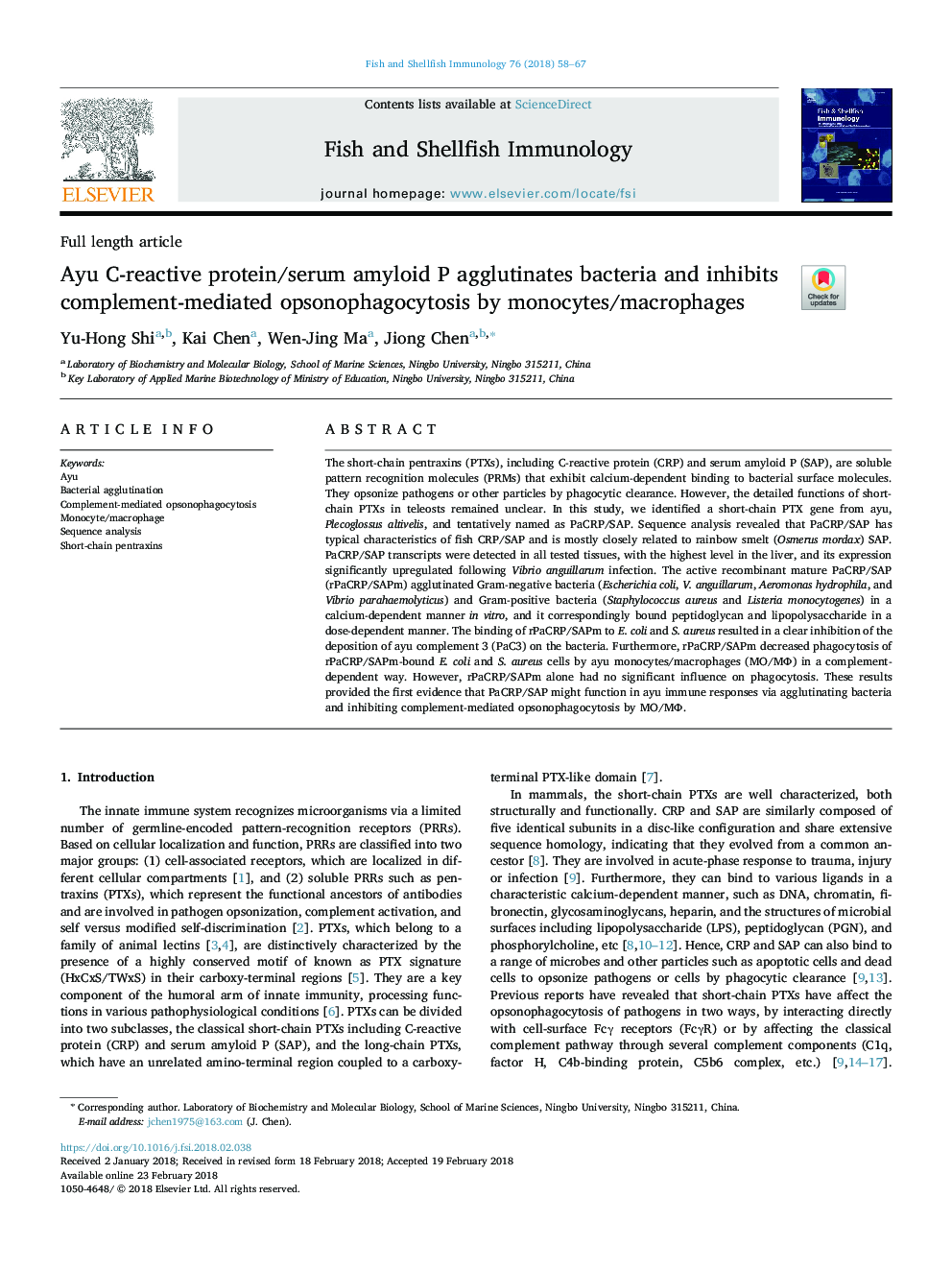| Article ID | Journal | Published Year | Pages | File Type |
|---|---|---|---|---|
| 8498495 | Fish & Shellfish Immunology | 2018 | 10 Pages |
Abstract
The short-chain pentraxins (PTXs), including C-reactive protein (CRP) and serum amyloid P (SAP), are soluble pattern recognition molecules (PRMs) that exhibit calcium-dependent binding to bacterial surface molecules. They opsonize pathogens or other particles by phagocytic clearance. However, the detailed functions of short-chain PTXs in teleosts remained unclear. In this study, we identified a short-chain PTX gene from ayu, Plecoglossus altivelis, and tentatively named as PaCRP/SAP. Sequence analysis revealed that PaCRP/SAP has typical characteristics of fish CRP/SAP and is mostly closely related to rainbow smelt (Osmerus mordax) SAP. PaCRP/SAP transcripts were detected in all tested tissues, with the highest level in the liver, and its expression significantly upregulated following Vibrio anguillarum infection. The active recombinant mature PaCRP/SAP (rPaCRP/SAPm) agglutinated Gram-negative bacteria (Escherichia coli, V. anguillarum, Aeromonas hydrophila, and Vibrio parahaemolyticus) and Gram-positive bacteria (Staphylococcus aureus and Listeria monocytogenes) in a calcium-dependent manner in vitro, and it correspondingly bound peptidoglycan and lipopolysaccharide in a dose-dependent manner. The binding of rPaCRP/SAPm to E. coli and S. aureus resulted in a clear inhibition of the deposition of ayu complement 3 (PaC3) on the bacteria. Furthermore, rPaCRP/SAPm decreased phagocytosis of rPaCRP/SAPm-bound E. coli and S. aureus cells by ayu monocytes/macrophages (MO/MΦ) in a complement-dependent way. However, rPaCRP/SAPm alone had no significant influence on phagocytosis. These results provided the first evidence that PaCRP/SAP might function in ayu immune responses via agglutinating bacteria and inhibiting complement-mediated opsonophagocytosis by MO/MΦ.
Related Topics
Life Sciences
Agricultural and Biological Sciences
Aquatic Science
Authors
Yu-Hong Shi, Kai Chen, Wen-Jing Ma, Jiong Chen,
